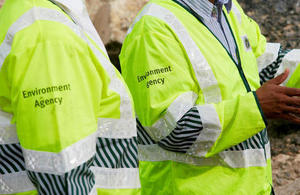Parole Board Chief Executive’s blog – June 2020 recruitment
The Parole Board last week launched its latest recruitment drive for new psychologist, psychiatrist and retired judicial members. This is an exciting opportunity for those who feel they can contribute to the vital job we do in risk assessing society’s most serious offenders on their suitability for release into the community.
The work is both stimulating and interesting and I would like to take this opportunity to explain a little about the recruitment campaign, the Parole Board and what the work would involve. The Parole Board is an independent body which aims to protect the public by assessing whether prisoners can be safely released back into the community. Our work is of critical importance to prisoners and their families, but it also has a wider role in maintaining public confidence in the justice system.
I am extremely proud of the work we do, however, I know there is more to be done. This recruitment campaign gives candidates the opportunity to be part of this work and our wider vision going forward.
We are pressing ahead with our member recruitment drive to ensure that we have the right people in place to deliver parole decisions in ways that are fair and timely for prisoners, victims and the public. There are currently 263 members. The majority are independent members, meaning that they come from all walks of life and we also recruit from specific professions. Our membership will increase to 292 in September and include 62 retired and serving judges, as well as 53 psychologists and 20 psychiatrists.
There is an increasing demand for specialist input in our cases and we are looking to appoint up to 15 new psychologist members; 15 psychiatrist members and 10 new judicial members from the ranks of retired judges. We are seeking people with a genuine interest in the work we do and who possess the ‘behaviours’, strengths and skills to make an effective contribution to the Board’s work.
This is a very exciting time to be joining the Parole Board. The Board has reacted quickly to continue to progress cases amid the present public health crisis despite the huge challenges we are facing and restrictions in place at prisons across the country. This has involved innovative changes which are likely to endure beyond the pandemic. Before the coronavirus outbreak, almost all oral hearings took place inside prisons with all parties involved in one room. Far from grinding to a halt, we have made thousands of parole decisions since the outbreak, adapting and making use of remote hearings (video and telephone). Provisional figures indicate that up to 12th of June, 6,368 decisions had been made, with nearly 800 prisoners directed for release, over 130 recommended for open conditions, and over 3,000 directions that imprisonment continues to be necessary for the protection of the public.
We believe we have achieved this in a manner which both ensures the protection of the public without compromising fairness to the prisoner. Once the pandemic is over, we expect that there will be many remote hearings as prisons will have improved their capability to hold them. Nevertheless, there will still be a substantial number of cases requiring face to face oral hearings and we will need psychologists and psychiatrists across all of England and Wales, and especially outside London and the south east. We expect that parole panels will undertake a mix of both remote and face to face hearings.
We have also adapted our training and guidance so that members continue to have access to a range of resources to support them in this vital work. If you believe that you have the qualifications, experience and qualities that we are seeking, I hope you will consider applying for this important and rewarding position.
We are aware that our membership is not sufficiently ethnically diverse. We would therefore particularly welcome candidates from a Black, Asian or Minority Ethnic (BAME) background.
